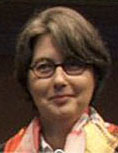Miljoenensubsidie voor chronobiologe Martha Merrow
Het bestuur van Technologiestichting STW heeft groen licht gegeven aan vijf nieuwe onderzoeksprogramma's, waaronder het programma ONTIME van chronobiologe prof.dr. Martha Merrow van de Rijksuniversiteit Groningen. Haar onderzoek gaat over het repareren van de verstoring van onze biologische klok. Merrows onderzoek ontvangt 5,5 miljoen van STW en 1 miljoen vanuit het bedrijfsleven.
De programma's maken onderdeel uit van het Perspectiefprogramma van STW, dat wordt gefinancierd door het Ministerie van Economische Zaken, Landbouw en Innovatie (EL&I). Ze passen binnen de topsectoren die het huidige kabinet heeft gedefinieerd en zijn afgestemd met de Nederlandse Organisatie voor Wetenschappelijk Onderzoek (NWO). De hightech-sector wordt met de programma's in het bijzonder bediend. De programma's hebben ieder een looptijd van zes jaar en een omvang van tussen 3 en 6 miljoen euro. STW steekt er circa 22 miljoen euro in. Vanuit vooral het bedrijfsleven wordt nog eens 6 miljoen euro bijgedragen.
Technologiestichting STW financiert excellent technisch-wetenschappelijk onderzoek, dat uitzicht biedt op toepassing. Elk jaar heeft STW een apart budget beschikbaar voor Perspectiefprogramma's. Karakteristieken van deze programma's zijn het ontwikkelen van nieuwe technologie via een multidisciplinaire aanpak, samenwerking met dan wel medefinanciering door private partijen en specifieke activiteiten gericht op valorisatie en ondernemerschap. Het resultaat moet zijn dat STW-Perspectief bijdraagt aan het oplossen van knelpunten in de innovatie en in de samenleving.
ONTIME: how to fix a broken (biological) clock

Programmaleider: prof.dr. Martha Merrow (Rijksuniversiteit Groningen). Samenwerking van twee universiteiten, vier medische instellingen, één kennisinstelling, één regionale organisatie en tien bedrijven.
Ons lichaam leeft volgens de biologische klok; als mens in de maatschappij leven we echter naar de sociale klok. Dit leidt onvermijdelijk tot conflicten en het lichamelijk organisme heeft daar last van. Op basis van recente inzichten in het functioneren van de biologische klok moet het programma leiden tot allerlei soorten 'producten' om onze manier van leven te verbeteren. Dat zullen protocollen zijn om de beide klokken beter op elkaar af te stemmen en technische hulpmiddelen om dat in de gaten te houden. Het zal gaan om verlichting, soms zelfs speciale lampen, eventueel met medische aanwijzingen voor het gebruik. Het gaat om aanbevelingen hoe beter te slapen, wat wanneer te eten ('neutriceuticals') en inzichten in de invloed van de biologische klok op ziekten en de werking van medicijnen. Met al deze inzichten en hulpmiddelen zullen we op school, op het werk en thuis beter kunnen functioneren. We zullen er gezonder oud mee worden. Iedereen met een lamp en een wekker zal profijt hebben van de resultaten van het programma. Het maatschappelijke en economische voordeel zal navenant zijn.
Zie ook: www.stw.nl
Meer nieuws
-
17 februari 2026
De lange zoektocht naar nieuwe fysica
-
10 februari 2026
Waarom slechts een klein aantal planeten geschikt is voor leven
